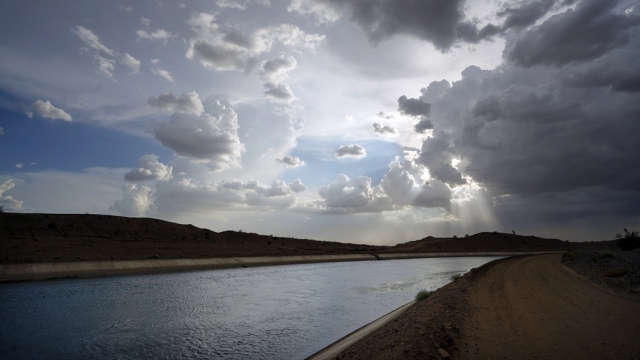From above, the drying up of Lake Powell is stark and startling.
"About 25% of the world's population lives in a lake watershed that is exhibiting drying," said Balaji Rajagopalan, a professor at the University of Colorado.
Among them are 40 million people in seven Southwestern states who rely on the Colorado River for water — and some for power as well.
It's a critical lifeblood that's disappearing.
"Close to 50%, slightly less than that, of the trends, the factors driving the trends are human consumption and temperature," Rajagopalan said.
But now, three lower basin states — California, Nevada and Arizona — have broken through a year-long stalemate to agree on water consumption cuts that could be critical to staving off the worst impacts of the Colorado River drying.
The cuts are measured in acre-feet, one acre-foot being the amount of water a typical American family uses annually. The three states are agreeing to conserve 3 million acre-feet over the next three years.
The federal government will compensate them for most of that via funds from the Inflation Reduction Act.
SEE MORE: Tribe, US officials reach deal to save Colorado River water
"I started seeing that, thinking, 'Gosh, I'm wasting this water, and we're in a drought," said Justin Fox, a California resident.
Fox started saving water by installing a hydroloop at his house. It's a device that recycles grey water, or shower and sink runoff.
"Now, certainly you can't be drinking this water; in case there's an issue in the unit, you don't want to be drinking shower water," Fox said. "But for outside cleaning, gardening, using it to top off your pool and for using it for your toilets, it's a no-brainer."
It's measures like these that California and other basin states might be able to incentivize with funding from Washington, while meaningfully cutting water consumption to save the drying lakes.
"We have to think about the fact that we live in a desert," Fox said. "It's not going to go away. We need to find ways of saving water."
The Interior Department will now analyze the proposal from the basin states to determine the impact. It's also working on guidelines for consumption after 2026.
Trending stories at Scrippsnews.com




